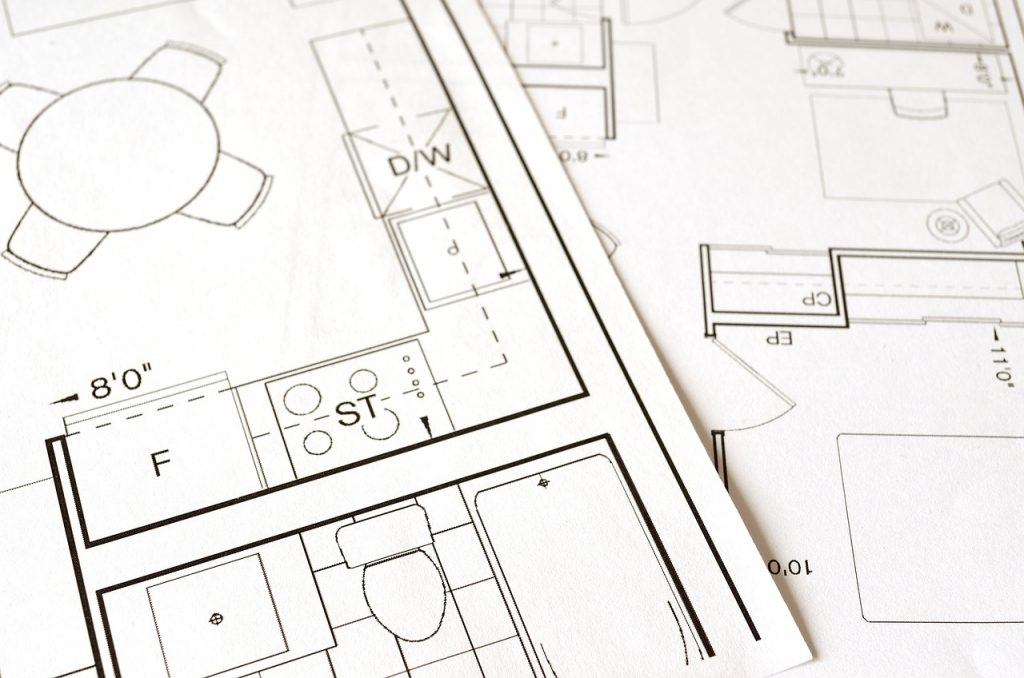Are you facing legal concerns related to construction lien law? If so, you’re in the right place! In this article, we aim to provide you with valuable information and guidance to address common legal issues in this area. Our goal is to reassure you and establish an emotional connection by understanding your concerns and offering expert assistance. Whether you need clarification on the legalities of construction liens or want to explore your options, our team of experienced attorneys is here to help. Don’t hesitate; give us a call today to take the next step towards seeking the assistance you need.
What is Construction Lien Law?
Construction lien law refers to the legal framework that governs the rights and obligations of contractors, suppliers, and property owners involved in construction projects. It provides a mechanism to protect the rights of contractors and suppliers and ensures payment security for their work and materials. Construction lien law also plays a crucial role in preserving project financing and avoiding costly disputes. Understanding the key elements of construction lien law is essential for all parties involved in construction projects.
Importance of Construction Lien Law
Protecting the Rights of Contractors and Suppliers
Construction lien law is designed to protect the rights of contractors and suppliers by ensuring that they are paid for the work they have performed or the materials they have supplied. Contractors and suppliers invest time, labor, and resources into construction projects, and it is crucial for them to receive fair compensation for their contributions. Construction lien law provides a legal mechanism to assert and enforce their right to payment.
Ensuring Payment Security
Payment security is a significant concern in the construction industry. Without adequate protection, contractors and suppliers may face financial hardships if owners fail to pay or become financially unstable during a project. Construction lien law establishes provisions such as lien rights, which allow contractors and suppliers to secure their payment interests by placing a claim on the property involved in the construction project. This ensures that contractors and suppliers have a legal recourse in case of non-payment.
Preserving Project Financing
Construction projects often require substantial financial investments, and project financing can be complex. Construction lien law helps preserve project financing by providing a level of certainty and security to lenders and investors. The availability of lien rights and the enforcement procedures provided by construction lien law help mitigate the risks associated with non-payment, thus encouraging lenders and investors to provide the necessary funding for construction projects.
Avoiding Costly Disputes
Disputes over payment and unresolved financial issues can lead to costly legal battles and delays in construction projects. Construction lien law establishes clear guidelines and procedures for resolving payment disputes, ensuring that parties involved can address their concerns in an efficient and timely manner. By providing a legal framework for dispute resolution, construction lien law helps prevent unnecessary litigation and allows parties to reach fair and amicable settlements.

Key Elements of Construction Lien Law
Understanding the key elements of construction lien law is essential for all parties involved in construction projects. These elements include notice requirements, time limits, documentation, and enforcement procedures.
Notice Requirements
Construction lien law often imposes notice requirements that contractors and suppliers must fulfill to assert their rights. These notices serve as formal notifications to property owners, ensuring that they are aware of the contractor or supplier’s involvement in the project and their potential lien rights. Failure to comply with the notice requirements may result in the loss of lien rights or other legal consequences.
Time Limits
Time limits play a crucial role in construction lien law. Contractors and suppliers must adhere to specific deadlines for filing liens, sending notices, or taking legal actions related to their payment claims. These time limits vary depending on the jurisdiction and the nature of the construction project. It is important to carefully track and comply with these deadlines to preserve and assert payment rights effectively.
Documentation
Maintaining accurate and comprehensive documentation is essential in construction lien law. Contractors and suppliers should keep records of contract documents, invoices, payment records, notices, and correspondence related to the construction project. These documents serve as evidence to support payment claims, prove the scope of work performed, and establish the timeline of the project. Robust documentation helps strengthen a contractor or supplier’s position in any payment dispute or legal action.
Enforcement Procedures
Enforcement procedures detail the steps that contractors and suppliers can take to assert and enforce their lien rights or other payment claims. These procedures may include filing a lien, initiating lien foreclosure proceedings, or pursuing a lawsuit or alternative dispute resolution methods. Understanding the enforcement procedures provided by construction lien law is crucial for contractors and suppliers to protect their rights and seek appropriate remedies in case of non-payment.
1. Notice Requirements
Notice requirements are an important aspect of construction lien law. Contractors and suppliers often need to fulfill specific notice obligations to preserve their lien rights or other payment claims. Two common types of notices are preliminary notice and notice of intent to lien.
Preliminary Notice
A preliminary notice is a formal notification that contractors or suppliers must send to property owners, general contractors, or other parties involved in the construction project. This notice informs the recipient of the contractor or supplier’s participation in the project and their potential right to file a lien if payment issues arise. Preliminary notices usually contain essential information such as the name and address of the contractor or supplier, a description of the work or materials provided, and the expected payment amount.
Notice of Intent to Lien
A notice of intent to lien is a formal communication sent by a contractor or supplier to the property owner or other relevant parties, indicating their intent to file a lien if payment issues are not resolved. This notice serves as a final warning and provides an opportunity for the parties to address payment concerns before legal actions are taken. A notice of intent to lien typically outlines the outstanding payment amount, the deadline for payment, and the consequences of non-payment.

2. Time Limits
Time limits are critical in construction lien law. Contractors and suppliers must adhere to specific deadlines for various actions related to their payment claims. The three key time limits in construction lien law are the deadline for filing a lien, the notice of commencement, and the lien release or lien foreclosure.
Deadline for Filing Lien
Contractors and suppliers must file a lien within a specified period after completing their work or supplying materials. This deadline varies depending on the jurisdiction and the specific project. Failing to file a lien within the prescribed time limit may result in the loss of lien rights and the inability to secure payment through a lien.
Notice of Commencement
A notice of commencement is a document filed by the property owner to provide notice to potential lien claimants that a construction project has started. It contains information such as the property owner’s name, the project address, and the general contractor’s information. The notice of commencement helps establish the timeline for filing a lien and serves as a reference point for determining lien rights and obligations.
Lien Release or Lien Foreclosure
If payment disputes are resolved, contractors and suppliers may need to release their liens voluntarily by filing a lien release. This document removes the claim on the property and acknowledges that payment has been satisfactorily received. If payment issues remain unresolved, contractors and suppliers may pursue lien foreclosure, which involves initiating legal proceedings to enforce the lien and potentially force the sale of the property to satisfy the payment claim.
3. Documentation
Maintaining comprehensive documentation is crucial in construction lien law. Contractors and suppliers should keep detailed records of various documents throughout the duration of the construction project. The key documents to maintain include contract documents, invoices and payment records, notices and correspondence, and proof of work.
Contract Documents
Contract documents form the basis of any construction project. Contractors and suppliers should keep copies of all contracts, including agreements, change orders, and any amendments or modifications. These documents outline the scope of work, payment terms, and other crucial details that may impact payment rights.
Invoices and Payment Records
Maintaining accurate invoices and payment records is essential for tracking payment status and substantiating payment claims. Contractors and suppliers should keep copies of all invoices sent, proof of delivery, and any payment receipts or acknowledgments. These records provide evidence of the work done and the amounts due, supporting payment claims in case of disputes.
Notices and Correspondence
Keeping a record of all notices and correspondence related to the construction project is important in construction lien law. This includes any formal written communication, such as notices of payment delays, change orders, or other relevant correspondence exchanged between parties. These documents serve as evidence of the ongoing communication and can be crucial in resolving payment disputes or demonstrating compliance with notice requirements.
Proof of Work
Maintaining proof of work is vital to support payment claims and establish the scope of services or materials provided. Contractors and suppliers should document their work progress, including photographs, daily reports, or any other means that can demonstrate the completion and quality of work performed. This documentation helps establish the value of the work and strengthens the contractor or supplier’s position in any payment dispute or legal action.
4. Enforcement Procedures
Enforcement procedures outline the steps that contractors and suppliers can take to assert and enforce their payment claims under construction lien law. These procedures may involve filing a lien, pursuing lien foreclosure, or resorting to a lawsuit or alternative dispute resolution methods.
Lien Filing
Filing a lien is a legal process by which contractors and suppliers can assert their payment claims on the property involved in the construction project. The specific requirements and procedures for filing a lien may vary depending on the jurisdiction. Contractors and suppliers must adhere to the prescribed guidelines and deadlines to ensure the validity and enforceability of the lien.
Lien Foreclosure
If payment issues remain unresolved, contractors and suppliers may initiate lien foreclosure proceedings. Lien foreclosure involves taking legal action to enforce the lien and potentially force the sale of the property to satisfy the payment claim. The legal proceedings for lien foreclosure can be complex and may require the assistance of legal counsel to navigate effectively.
Lawsuit or Alternative Dispute Resolution
In some cases, contractors and suppliers may need to resort to a lawsuit or alternative dispute resolution methods to resolve payment disputes. This typically involves initiating legal action against the property owner or other parties involved in the construction project. Lawsuits and alternative dispute resolution methods, such as mediation or arbitration, provide a formal process for addressing payment concerns and seeking appropriate remedies.
Common Legal Concerns in Construction Lien Law
While construction lien law provides a legal framework to protect the rights of contractors and suppliers, several common legal concerns may arise during construction projects. Addressing these concerns directly and providing reassurance and guidance is essential.
Non-Payment by Owners
Non-payment by property owners is a significant concern for contractors and suppliers. Whether due to financial difficulties or disputes over work quality or contract terms, contractors and suppliers often face the risk of non-payment. In such situations, construction lien law provides a mechanism for asserting payment claims and seeking appropriate remedies to secure payment.
Disputed Payment Amounts
Disputes over payment amounts can lead to delays and disruptions in construction projects. Contractors and suppliers may encounter disagreements with property owners or other parties regarding the value or scope of work performed. Construction lien law helps address these disputes by providing guidelines for documenting and substantiating payment claims, allowing parties to present their arguments and reach fair resolutions.
Fraudulent Lien Claims
Fraudulent lien claims can cause significant harm to contractors, suppliers, and property owners alike. Fraudulent claims may involve individuals or entities attempting to assert payment rights falsely or manipulating lien filings for personal gain. Construction lien law includes provisions to address fraudulent lien claims and protect innocent parties from unwarranted legal consequences.
Priority Disputes
Priority disputes may arise when multiple liens are filed against a property. Contractors and suppliers may find themselves in a situation where their payment claims compete against other lienholders or creditors. Construction lien law provides guidelines for determining lien priorities and resolving conflicts between competing claims. Understanding these guidelines and asserting payment claims effectively is crucial in avoiding priority disputes.

Legal Reassurance and Guidance in Construction Lien Law
Navigating the complexities of construction lien law can be daunting. Having access to legal reassurance and guidance is essential to protect your rights and ensure a fair outcome. Consulting with an experienced construction lien law attorney can provide you with the knowledge and assistance necessary to navigate through the legal complexities and advocate for your payment interests. An attorney specialized in construction lien law can help you understand your rights, guide you through the necessary steps, and represent your interests in any legal proceedings.
Seeking Assistance Promptly with Construction Lien Law
If you are facing payment issues or concerns related to construction lien law, it is important to seek assistance promptly. Delaying action may limit your options and compromise your ability to secure payment. By reaching out to a construction lien law attorney, you can get the advice and support you need to protect your rights and pursue a favorable resolution.
Remember, construction lien law exists to protect your payment interests and provide a fair and equitable mechanism for resolving payment disputes. By understanding the key elements of construction lien law and seeking legal assistance when needed, you can navigate the complexities of the construction industry with confidence. Don’t hesitate to take the next step and seek professional guidance to ensure your payment security and protect your rights in construction projects. Call [Phone Number] today to speak with an experienced construction lien law attorney and get the help you need.